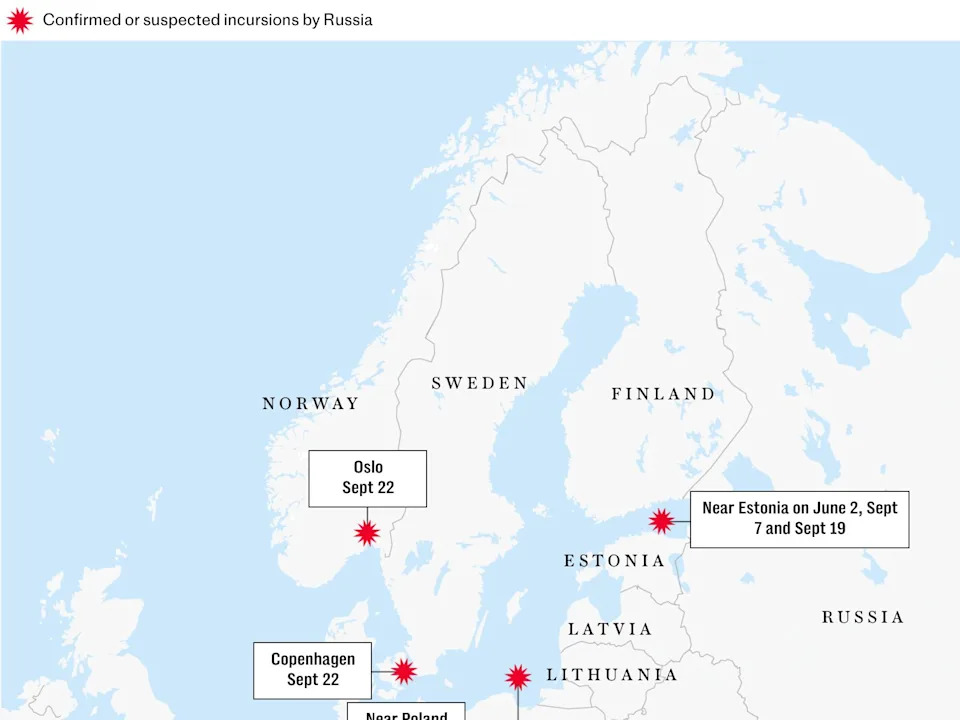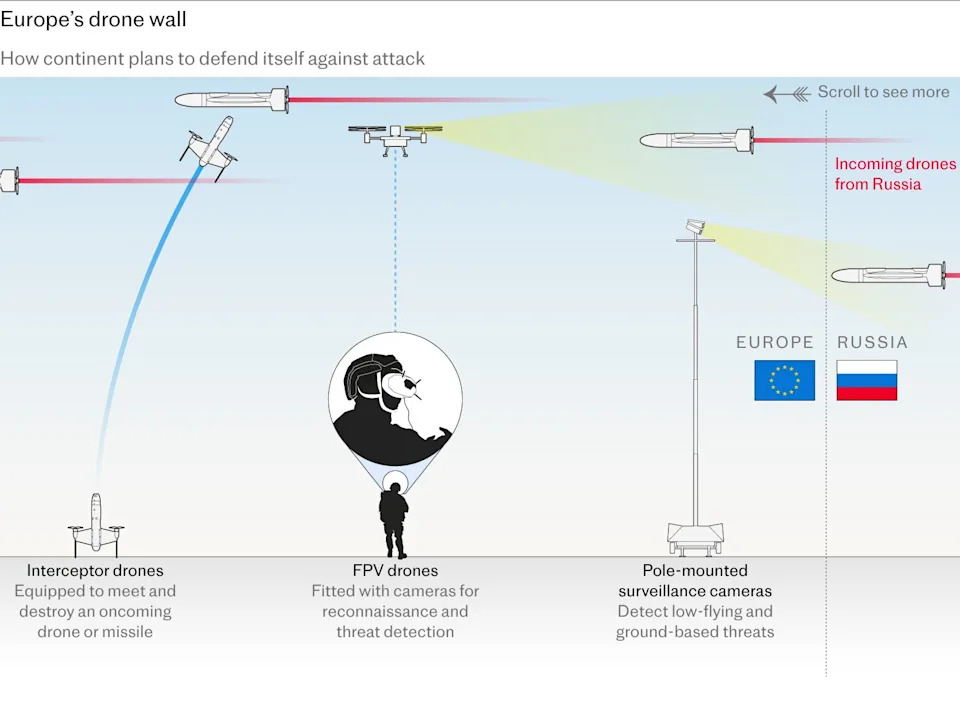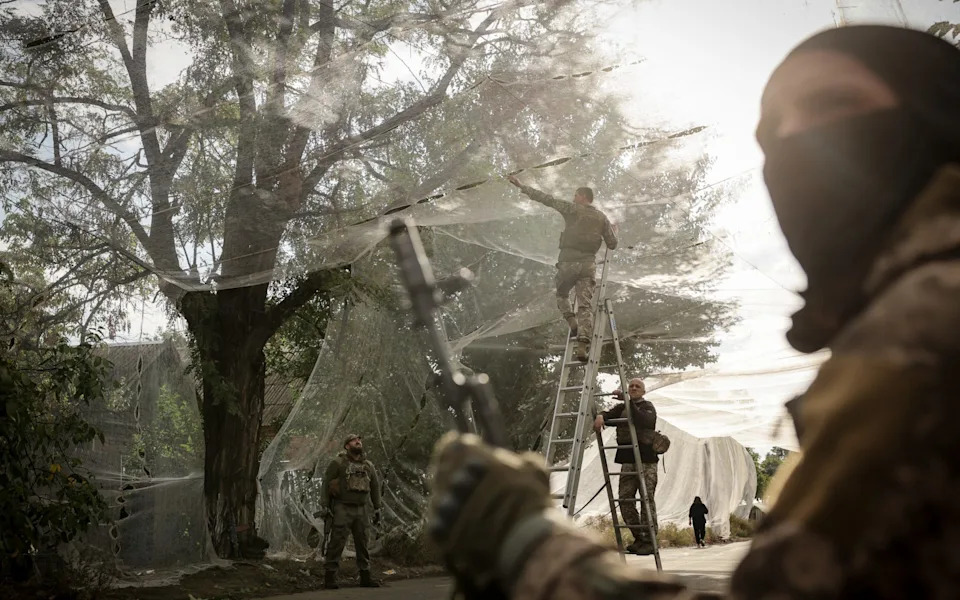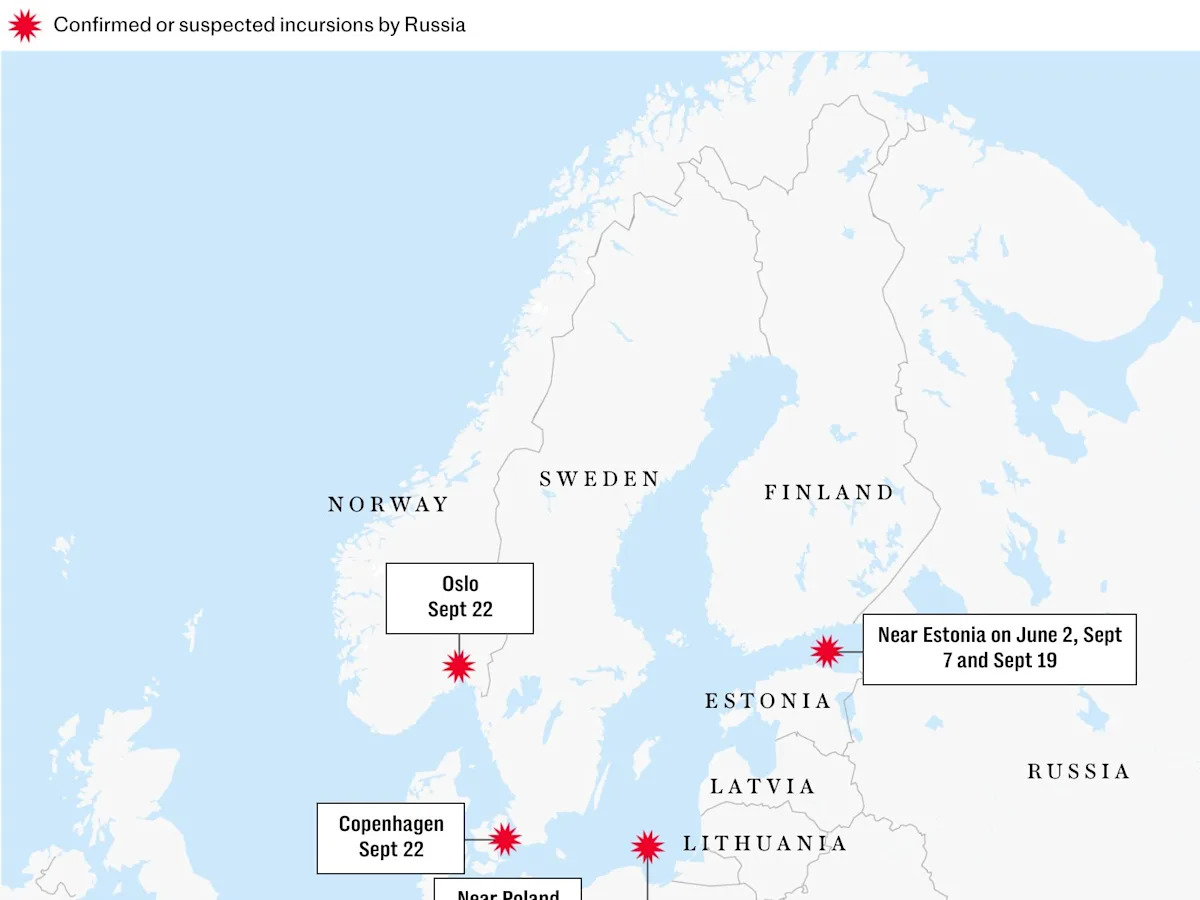Britain is sending a team of drone experts to Moldova to train troops in how to combat potential Russian incursions.
John Healey, the Defence Secretary, said on Wednesday morning that the UK was seeking to “ramp up our response to Russia’s aggression”.
A contingent of British military personnel will be deployed to the country, which borders Ukraine, to train Moldovan soldiers how to identify, track and destroy unmanned aerial vehicles.
The deployment follows a series of Russian aerial incursions across Europe. About 20 Russian drones flew into Poland, while Russian MiG-31 fighter jets passed into Estonian airspace for 12 minutes.
Speaking before a meeting of Nato defence chiefs in Brussels, Mr Healey said: “Putin’s incursions into Nato territory are reckless, dangerous, and totally unacceptable.
“Deliberate or not, Putin is watching what we do. And Putin should be in no doubt, if Nato is threatened, we will act.”
Tensions between Nato and Russia have risen in recent weeks, after a number of countries within the alliance reported drones entering their airspace.
b’

Copy of 2809 There is a gaping hole in Europe\’s drone defences
‘
Poland claimed to have shot down at least three Russian drones during last month’s incursion. Donald Tusk, the prime minister, called the incident an “act of aggression”, warning it was “the closest we have been to open conflict since the Second World War”.
On Oct 2 and 3, Munich airport closed its runways for several hours after drones were sighted. Similar incidents have also been reported in Denmark.
In response, British fighter jets were launched to fly defensive missions over Poland as part of Nato’s Eastern Sentry mission. RAF Typhoons joined allied forces, including from Denmark, France and Germany, to shore up Nato’s defences along its eastern flank.
Mr Healey confirmed on Wednesday that Britain was extending its deployment of fighter jets as part of Eastern Sentry until the end of the year.
He added: “Putin seeks to test, to divide, to distract. Nato nations step up, to deter, to unite, stronger together than ever.”
Moldova is not a Nato member, but cooperates with the alliance.
Last week Mr Healey said British-made drones would be deployed to create a “drone wall” to protect Nato’s eastern flank.
b’

2609 Europe\xe2\x80\x99s drone wall
‘
Mr Healey also revealed on Wednesday that, as part of Britain’s efforts to put pressure on Russia, the UK had sent 85,000 drones into Ukraine to help Kyiv’s forces.
The Defence Secretary said the UK had invested £600m to speed up drone deliveries to Ukraine, adding that shipments have included “tens of thousands of short-range first-person view drones that are crucial to supporting Ukraine’s front line”.
The Ministry of Defence said: “These drones are being used for precision strikes, reconnaissance, and disrupting Russian activity behind the front lines, countering Russia’s own attempts at massed drone tactics.”
The war in Ukraine has increasingly become dominated by drones, causing up to 80 per cent of battle casualties.

Ukrainian servicemen cover a road in the Donetsk region with an anti-drone net to protect vehicles – Oleg Petrasiuk/24th Armed Brigade of Ukrainian Armed Forces
Mr Healey said Britain would be going further by “ramping up our drone production for Ukraine”, to deliver 100,000 drones this year.
His comments came amid claims military aid to Ukraine dipped over the summer.
According to Berlin’s Kiel Institute, which tracks most types of aid to Ukraine, weapons donations to Kyiv plummeted by 57 per cent, while “momentum collapsed in the summer”.
Meanwhile, Donald Trump continues to mull over whether he will give Ukraine Tomahawk cruise missiles to pressure Vladimir Putin.
Volodymyr Zelensky, the Ukrainian president, who pushed for stronger military support to launch counter-attacks against Russia, is appealing for the long-range missiles, insisting they will be used to target Russian military infrastructure.
However, Moscow has previously warned Washington against providing Tomahawks to Kyiv, saying it would cause a major escalation in the conflict and strain US-Russian relations.
